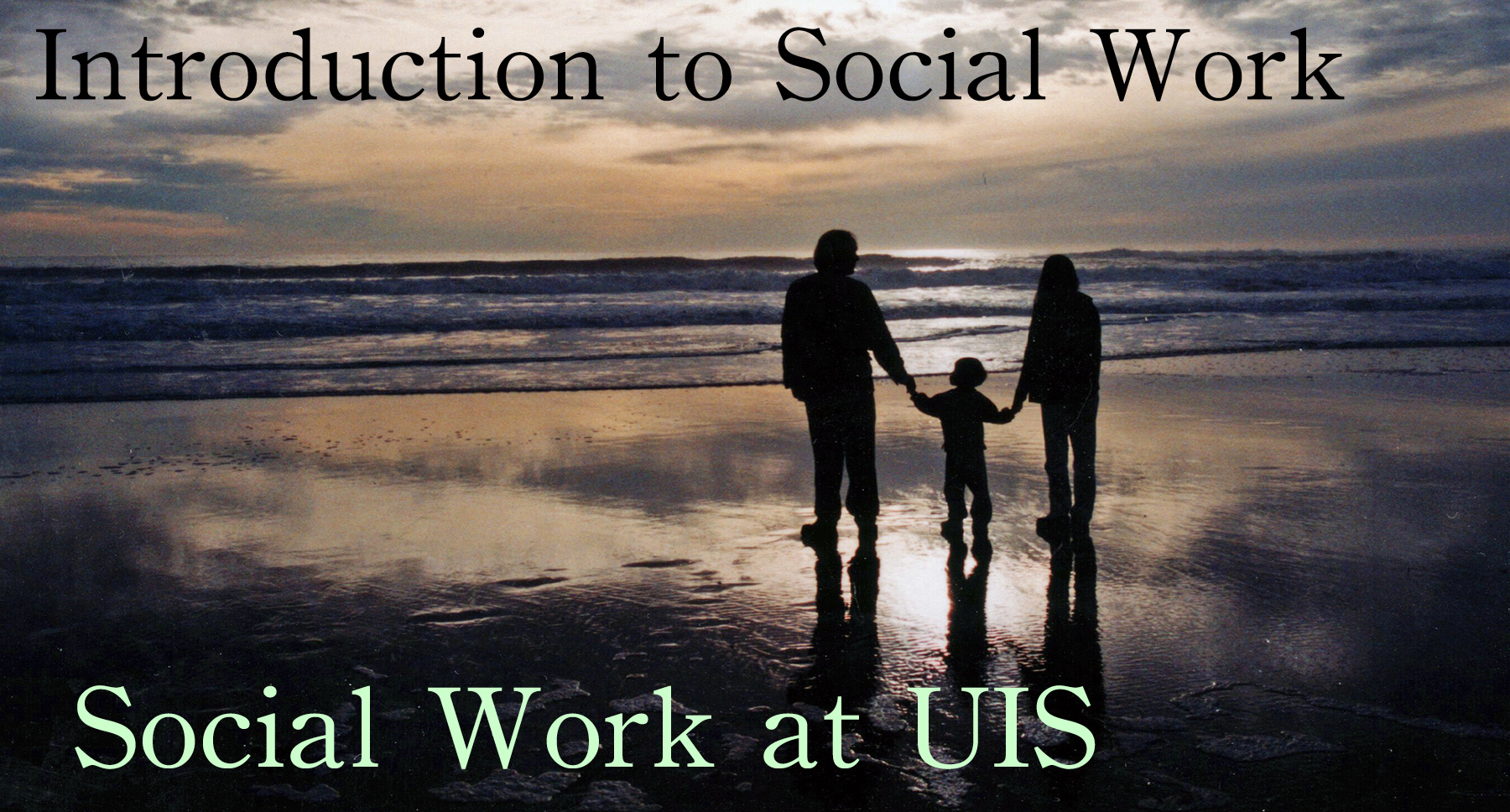Class meeting this week is on Zoom.
Class begins April 14th at 2:00 pm and lasts until 3:30 pm
Class session lasts from April 14 at 2:00 p.m. to April 21 at 1:59 p.m.
This page describes what you should do in this thirteenth session.
Objectives of this session
- Discuss Known to Social Services. Share our understanding of what is going on in the story.
Time Budget for 9 hours
2h 30m Class meeting on Zoom and time reading and posting in Canvas discussion board
1h 10m Read Chapter 1 (Social Work in the ER); chapter 10 (An Inner-City High School); chapter 33 (Social Work in a Police Department); and chapter 36 (Residential Treatment for Adolescent Sexual Offenders). If you are using the 4th edition rather than the newer 5th edition, there may not be a chapter about social work in a police department, but there are no quiz questions based on that chapter.
2h Use the internet to find current articles and reports and information about your paper topic. Read about your topic.
2h 20m Reading chapters 13 through 19 (pages 99-179) in Known to Social Services
1h Do the activity where pick a social worker or historical person conncted with social work and read about who they were/are and what they did/do, and possibly read something they wrote. Prepare notes to share with the class in the next class session discussion board.
What will happen in the class meeting at the start of this session?
During our 2.5 hours, I expect to use time in the following ways:
- We will begin class with check-in, as always. Please be ready to speak for a minute or less about how you are doing and what you are thinking. You might share one highlight of the past week (in terms of news about your life); one thing you are looking forward to in the coming week (personal and/or related to class); and then share some major insight or idea or fact you learned in the previous week that you think is worth remembering and keeping in mind. As you should have picked a topic for your paper last week, this would be a good time to share what you are thinking of writing about in your paper.
- We will discuss ways that social workers can work with police or ways that the range of tasks society has assigned to police might be distributed (partially) to social workers.
- Although everyone should post in the discussion board what you found about salaries and jobs for social workers, we will have some time to discuss that in the class session.
- Likewise, everyone should post what they learned about professions, but we will briefly review ideas about what a profession is and how social work is a profession.
- We will discuss Diane Foster, the social worker in Known to Social Services
- We will review all of the clients that Diane Foster has on her caseload (so far as we know from the narrative of the book).
- You will be invited to ask questions or make comments about Known to Social Services for the class to discuss or answer.
- I will explain what we mean by “generalist” social work practice, and ideas about generalist social work compared to specialized areas of social work.
- I will introduce the concept of human rights, one of the foundations of social work ethics, and we will talk about the specific case of cultural relativism presented in Known to Social Services where parental rights and respect for non-western cultural traditions are in conflict with concepts of human rights and the rights of children and the rights of women.
- I will reivew the role of systems theory and the Bio-Psycho-Social approach to planned change and assessment in social work.
What must you read this week?
Read Chapters 13 through 19 (pages 99-179) in Known to Social Services.
Chapters If you are using Days in the Lives of Social Workers 5th edition, the assignment is to read chapters 1, 10, 33, 36, and 55. These are the chapters “Social Work in the ER” and “An Inner-City High School” and “Social Work in a Police Department” and “Residential Treatment for Adolescent Sex Offenders” and “Working with Unaccompanied Minors in Britain”. If you are using the 4th edition, these are chapters 1, 12, 35, & 53 (pages 29-37; 103-108; 257-261; 375-380).
Work on your paper.
Hopefully, you came up with a topic area to investigate last week. This week, you should narrow your focus and spend a couple hours reading articles about your topic. This will help you decide what sort of a paper you want to read. Use the Mendeley App (or an equivalent) to keep copies of the sources you’re using for the paper.
Activities
I expect you to use about an hour of your time in this session to do the following activities (homework assignments). As our initial Zoom session may be fairly short, these activities are considered part of the class session.
- If you are taking the lab that goes with this course, you really had better get a list of possible placements for your service and start contacting people to see whether they could use 30 hours of your time as a volunteer this fall.
- If you attend the Zoom class meeting, spend about an hour posting and reading posts in the Canvas discussion board. You should have time to post five-to-ten responses to prompts and posts by your classmates.
Working on your Assignments
You have one special assignment this week (in addition to working on your paper)
- You should choose one social worker or figure from the history of social work. This could be any social worker, including a social worker you currently know. The easiest thing to do may be to pick one of the famous historical social workers mentioned in the class lecture on historical social workers.
- Spend 20-40 minutes reading about this person or talking to them. What are they known for? What did they do? What was their impact on society or the social work profession (or on your own life).
- Spend 10-20 minutes reading something this person wrote, and see if you can find a quotation or an observation from this person worth sharing or remembering.
- Spend 10-20 minutes writing down some notes about this person, and ideally, get the quotation with a citation for its source. Write about how you feel about this person.
- Your assignment for this week can be posted in the discussion board (as your response to the 5th discussion question in the second session). Share what you learned about this person with the class in the discussion board.
Discussion Questions this week
Here are the discussion questions. You should have time to answer a few of them, and also respond to some of your classmates. Remember to devote at least an hour to the discussion board participation, even if you attended the Zoom class meeting.
- Discussion Question 1:
Discussion Question 13-1:
Check in and tell us how you are doing.
Today, consider something you definitely want to accomplish before ten years have past. What are is an important accomplishment you are hoping to achieve? What are some of your goals for your life and your personal development in the coming ten years?
- Discussion Question 2:
Discussion Question 13-2: In the late 1980s and early 1990s when Marc Parent was an Emergency Children's Welfare worker in New York City, it seems the training he and others in his position received was inadequate, and it is also not clear what educational background was required beyond having a bachelor's degree (in any field). In the 25+ years since Parent had the experiences recounted in this book, training has improved and educational requirements now require specific types of bachelor's degrees (such as a BSW). Supervisors in Children's Emergency Services now typically have an M.S.W. (you can see a job description at the end of this session guide).
For this discussion question, please comment on whether you think the poor training level and the lack of requirement for education in a field related to child welfare, social work, or child development and psychology played a role in the way the child welfare workers behaved. If they had been better trained and had backgrounds with education related directly to their work, how might they have gone about their work differently? Can you point to any decisions or behaviors or attitudes or thoughts Marc Parent shared in this memoir that made it more difficult for him or his colleagues to do an adequate job, and can you say something about how better training or education might have been of use to him in improving his effectiveness?
- DQ 13-3
Discussion Question 13-3: Marc Parent and his colleague Dana removed Robby Hayes from this custody of his mother, but they didn't really want to do this. They were afraid of getting in trouble if Robby was harmed while with his mother, but they doubted he would be harmed. They didn't want to lie on the report and write that Mrs. Hayes seemed drowsy when she was obviously intoxicated. Yet, there were reasons for them to leave Robby. They accurately intuited that it would be a big hassle to remove Robby (it was far worse than they imagined), and their supervisor had sort of given them permission to leave him with his mom ("it's your call"). They also believed that Robby was able to take care of himself when his mom was intoxicated, and they figured he was probably just fine, and knew how to handle the situation when his mom was incapable of taking care of him. As you were reading this chapter, what were your opinions about the correct thing to do with Robby. Now, reflect back on the case, and consider it again. What are your opinions now about whether the social workers should have left Robby to stay with his intoxicated mom or whether they were correct to call police and force Robby to come with them. What is it about the situation that informs your opinion about the correct course of action?
It may seem obvious that Robby should have remained with his mom, but before you swiftly jump to that conclusion, consider that possibly the removal (and probable swift return to this mother) might have provoked a crisis in Robby's mother. She might now seek treatment for her alcohol abuse (or dependence). She will be offered services to support Robby's reunification with her (with might not have been offered had Marc and Dana falsely claimed she seemed "drowsy"). Perhaps removing Robby will be a catalyst that will help Robby and his mother have a much better future. But, that is just a possibility, and hardly a certainty.
- DQ-13-4:
Discussion Question 13-4: When Laura and Marc came to investigate the situation with Delia Gammon and her children Rick and Chucky, they discovered that Delia was having serious paranoid delusions and some hallucinations as well (although the hallucinations were ambiguous, and may have mostly been powerful delusions). However, Delia was involved with an ex-husband who really was persecuting her, so her paranoia was based on a factual and accurate assessment of her situation, although it had clearly crossed a line into psychotic symptoms. And yet, Laura and Marc were considering leaving Rick and Chucky with Delia. It is clear from the story that there was no rule that children should automatically be removed from a parent having paranoid delusions. What do you think about that? If a parent is the sole caregiver and is suffering from psychotic symptoms and paranoia, ought that to be grounds for automatic removal of children, or should children sometimes be left in the care of a person with psychotic symptoms? How should social workers make the decision in the case of a person with a florid and serious psychotic episode who is otherwise loving, sensible, oriented toward reality in many respects, and doing her/his best to care for her/his children?
By the way, I had a colleague who was one member of a committee that made decisions in cases like these for the state of Illinois, when a board was deciding what DCFS would recommend in cases where persons with serious mental illnesses who were trying their best to love and care for their children were at risk for having their parental rights terminated. She told me that one of the hardest things she had to deal with in her entire career was a kind and loving parent who told her that she loved her children more than anything in the world and she wanted to be the best parent possible for her children, but she was afraid that the voices she was hearing would make her do something bad to her children. Everyone struggles with this question. There is no answer that can make you feel satisfied that you have solved the problem.
-
DQ 13-5: Melissa doesn't know?
Discussion Question 13-5:
The eight-year old girl Melissa Pagan has been raped repeatedly over several months, and has contracted a serious sexually transmitted disease. Her mom says that Melissa never leaves the home and never has contact with any men, and Melissa herself says that no one is bothering her and no one is raping her.
Can you think of any approaches to the problem of identifying Melissa's abuser that the police and the child welfare workers Marc and Alex overlooked? What might you have done to discover Melissa's abuser in that emergency room?
Extreme violent abuse and repeated threatening sexual abuse of children are associated strongly with dissociation and dissociative disorders. A theory that explains this connection suggests that when young people are faced with severe repeated patterns of trauma (especially of a sexual nature) they may “split” and go into a sort of trance in which they can distance their personality and consciousness from the painful endurance of the horrific abuse. Since the dawn of psychology, it has been recognized that sometimes people repress (forget consciously) experiences of extreme trauma or distress (several of Freud's famous cases involved this sort of thing), and the selective amnesia is another type of symptom related to dissociation. In the case of Melissa Pagan, Marc considers (when he reflects back on the case as he wrote this memoir) that Melissa may have dissociated and experienced a total amnesia about the repeated sexual abuse. If a young person is denying that they have experienced something that you know they are experiencing, how might you go about getting them to "remember" or "recover" or "integrate" their experience so they could identify a perpetrator to you? What things might you do or say to help them?
-
DQ 13-6: International Social Work
Discussion Question 13-6: In recent sessions you were to read chapters in Days in the Lives of Social Workers that cover international social work, including a person who was working in Armenia as a consultant during a difficult time, a person who was dealing with Raskal gangs in the New Guinea highlands, and a social worker who works specifically with the Russian immigrant community. Having read these three chapters, are you more interested in international social work, or are you less interested in it, or have your feelings about international social work remained mainly the same? What do you find attractive, and what makes you feel apprehensive about international social work? What aspects of the stories in these three chapters made you more attracted to (or more repulsed away from) international social work?
Interesting Stuff To Explore
In this section of the class session guide I enjoy sharing interesting web resources of additional and supplemental materials I think you might enjoy exploring on your own time. You are not expected or assigned to look at this material, but I offer it to support your curiosity.
You might find this recent job description for a child protection manager to be of interest:
Emergency Children’s Services (ECS) is the after-hours service component of NYC Children?s Services. ECS?s child protective services staff conduct initial investigations of reported abuse and neglect cases after standard working hours, from 4:00 pm to 8:00 am, Mondays through Fridays, and 24 hours a day during weekends and holidays. Under senior managerial direction, with wide latitude for the exercise of independent action and decision-making, the child protection manager is responsible for managing the day-to-day operations of protective service units investigating reports of child abuse and neglect, providing crisis intervention, super vision, and preventive services to families. Specific duties include: ? Monitor the field activities of supervisory and /or child protective specialist staff. ? Supervise caseloads and case movements to ensure manageable workload with appropriate shift reassignments for follow-up during subsequent tours including weekends. ? Child Protection Manager?s responsibility consist of exemplifying leadership skills of effective communication, modeling, ? Coaching, educating and supporting staff to foster quality supervision to their subordinates daily. ? Investigations are conducted thoroughly and interventions are appropriate to protect children from abuse and neglect, minimizing trauma to children. ? Responsible for all compliance and quality case practice initiatives. ? Ensure daily unit operations conform to all applicable federal, state and local mandates and guidelines. ? Intervene in difficult case management decisions by exercising responsibility and discretion and assuming accountability. ? Attend meetings with other managerial staff and relay progress reports and issue analysis to the assistant commissioner. ? Create and implement management controls to monitor the performance of individual or units. ? Hold regular staff meetings and individual conferences to monitor performance; plan and determine the need for various personnel and budget actions. ? Schedule subject to change based upon operational needs ? Make sure that each unit is sufficiently staffed, properly equipped and trained and capable of carrying its responsibilities in accordance with applicable law, rules, regulations and policy.
Minimum Qual Requirements
1. A baccalaureate degree from an accredited college and four years of full-time, satisfactory professional social services or related experience in organizations dealing directly with children and/or adolescents; such as (but not limited to) child welfare agencies, Day-Care, educational institutions, mental health groups, pediatrics, juvenile justice. At least eighteen months of the required experience must be in a supervisor, administrative, managerial or executive capacity. 2. Education and/or experience equivalent to "1" above. However, all candidates must have at least eighteen months of experience in a supervisory, administrative, managerial, or executive capacity. A Master's degree in Social Work may be substituted for one year of the required general experience.
Preferred Skills
The preferred candidate should possess the following: a record of proven managerial or supervisory accomplishments in child protection or a closely related human service field; Master of Social Work degree or Master?s degree in a related discipline; excellent communications skills; ability to deal tactfully and effectively with diverse constituencies at all levels and an extensive understanding of child welfare issues; knowledge of the NY State Connections comprehensive case management system, or other automated child welfare system; familiarity working with NYC?s diverse communities; experience and ability to step into an existing unit and assume all responsibility quickly. Bilingual ability to communicate clearly in Spanish or other languages is considered a plus for this position.
Additional Information
Section 424-A of the New York Social Services Law requires an authorized agency to inquire whether a candidate for employment with child-caring responsibilities has been the subject of a child abuse and maltreatment report.The City of New York and the Administration for Children?s Services are Equal Opportunity Employers Committed to Diversity.
Finally, you should be aware of some of the major social work organizations in this world. Some of these have student memberships that are affordable, and you should probably join at least one or two of these. You could attend conferences sponsored by these organizations or their Illinois chapters. Here is a list of major social work organizations:
















